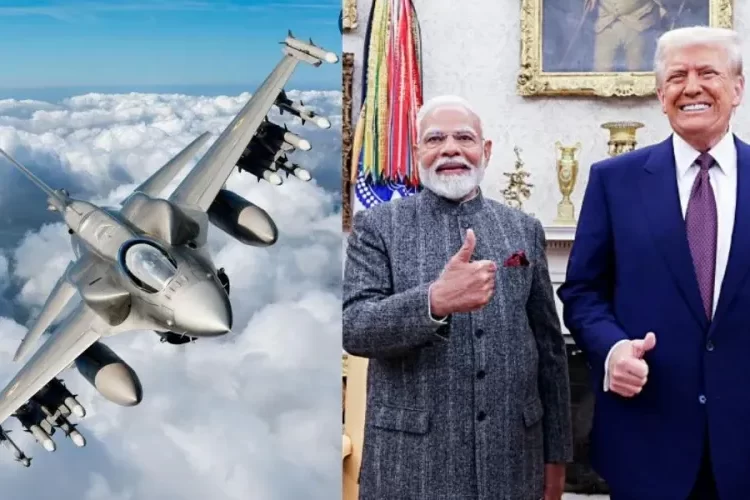Pakistan has strongly objected to US President Donald Trump’s announcement of providing F-35 stealth fighter jets to India during Prime Minister Narendra Modi’s recent visit to the United States. The Pakistani government has warned that such a move could destabilize the military balance in South Asia, undermine strategic stability, and hinder peace efforts in the region.
Pakistan’s Concerns Over India’s Military Capabilities
During a weekly press briefing on Friday, a spokesperson for Pakistan’s Ministry of Foreign Affairs (MOFA) expressed concerns over the US decision, stating that the planned transfer of advanced military technology to India could escalate regional tensions.
“Pakistan is deeply concerned over the planned transfer of advanced military technologies to India. Such steps accentuate military imbalances in the region and undermine strategic stability,” the spokesperson said.
He further urged the global community to take an objective view of South Asia’s security situation rather than endorsing positions that are “one-sided” and deviate from “ground realities.”
India-US Military Cooperation Strengthens
Trump’s announcement came during a joint press briefing with PM Modi, where he outlined plans to enhance military sales to India, stating, “Starting this year, we will be increasing military sales to India by many billions of dollars. We are also paving the way to ultimately provide India with the F-35, Stealth fighters.”
Following Trump’s remarks, Indian Foreign Secretary Vikram Misri clarified that while discussions are ongoing, no formal acquisition process has been initiated. “In most cases, a request for proposal is floated. There are responses to those. They are evaluated. As of now, I don’t think the formal process regarding the acquisition of the F-35 has started yet,” Misri explained.
As part of their growing defense partnership, India and the US also introduced the Autonomous Systems Industry Alliance (ASIA), an initiative aimed at enhancing industrial collaboration in the development of autonomous defense systems, particularly for underwater domain awareness.
Expanding Military Cooperation
Beyond the F-35 deal, India and the US have committed to expanding their military cooperation across various domains, including air, land, sea, space, and cyberspace. Both nations are focusing on joint training, military exercises, and operational coordination while integrating advanced defense technologies.
One of the key highlights of the defense discussions was the upcoming “Tiger Triumph” tri-service exercise, which will take place in India. This year’s edition is expected to be larger in scale and complexity compared to previous ones, further solidifying defense ties between the two countries.
Additionally, India and the US have agreed to improve logistics, intelligence-sharing, and force mobility, which will enhance military presence and operational efficiency in the Indo-Pacific region. These initiatives align with the “US-India COMPACT for the 21st Century,” a strategic framework launched by PM Modi and President Trump to boost Military Partnership, Accelerated Commerce, and Technology exchange.
Trump Announces Extradition of 26/11 Accused Tahawwur Rana
In another significant development, Donald Trump confirmed the extradition of Tahawwur Rana, a Pakistani-origin businessman convicted in connection with the 26/11 Mumbai terror attacks. Trump stated that his administration had approved the extradition, ensuring that Rana would be sent to India to face justice.
“I am pleased to announce that my administration has approved the extradition of one of the plotters (Tahawwur Rana) and one of the very evil people of the world, having to do with the horrific 2008 Mumbai terrorist attack to face justice in India. He is going back to India to face justice,” Trump said.
Rana was convicted for his involvement in the deadly attack, alongside his co-conspirator David Headley, who later testified against him. His extradition is expected to be a major diplomatic victory for India in its efforts to bring those responsible for the 26/11 attacks to justice.
The Growing India-US Defense Partnership
Trump’s announcement of the F-35 fighter jets for India and the strengthening of the Indo-US defense relationship signal a significant shift in regional military dynamics. While Pakistan continues to express concerns about the growing military cooperation between India and the US, New Delhi remains focused on modernizing its defence capabilities to enhance national security.
With the US-India COMPACT for the 21st Century paving the way for deeper collaboration, military modernization, and strategic alignment, the partnership between the two nations is set to reach new heights in the coming years.








 India
India












